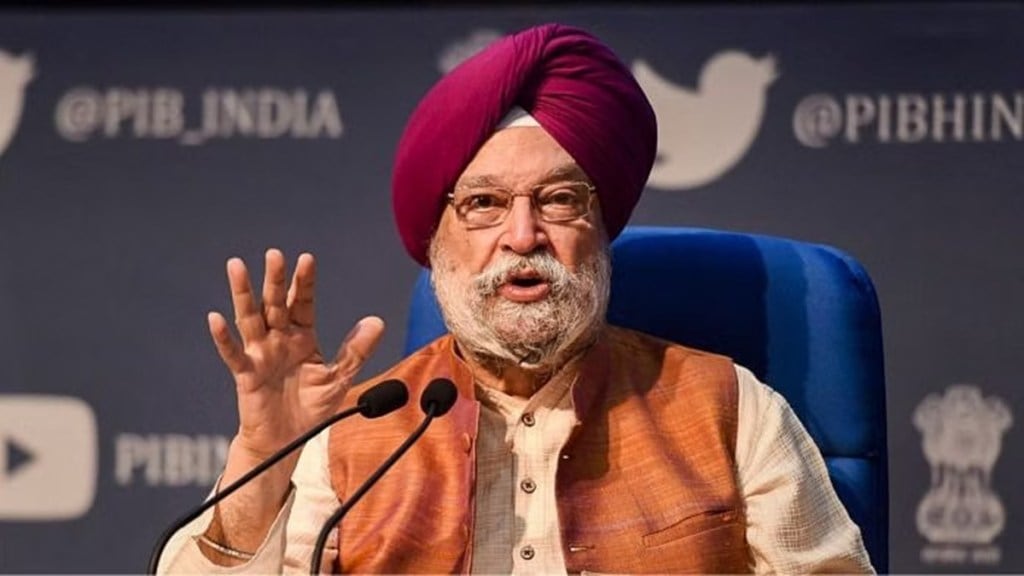There is headroom to cut petrol, diesel prices for the Indian oil marketing companies if the trend of lower crude oil prices continues, Union Oil Minister Hardeep Singh Puri said on Tuesday, adding that OMCs should be able to reduce fuel prices even if crude oil prices reach $65 per barrel.
Global crude oil prices have crashed to $63-65 per barrel (bbl) currently from above $77/bbl as on March 31 owing to growing fears of a global recession with retaliatory tariffs being announced by China. Additionally, the planned production increase by the Organisation of Petroleum Exporting Countries and allies is also contributing to downward pressure on crude prices, said Prashant Vasisht, Senior Vice President and Co-Group Head, ICRA.
Immediately before the general elections in 2024, the government had reduced petrol and diesel prices by Rs 2 a litre each. Petrol currently costs Rs 94.77/litre in Delhi while diesel costs Rs 87.67/litre to the retail consumers.
The government on Monday hiked the excise duties on petrol and diesel by Rs 2 each, seeking to use the window provided by subdued crude prices to mobilise additional revenues from the auto fuels. The extra receipts from the increase in the specific duties would be used to offset the under-recoveries incurred by the oil marketing companies.
While speaking on tariffs imposed by the US across countries, Puri said that the process has just begun, and India needs to have patience. “We should exercise both circumspection and understanding and allow situations to evolve,” he said.
The minister highlighted that tariffs serve various functions and when one country imposes tariffs on the other, it can have an effect on revenue and the trade of the country. He added that the Commerce Ministry is examining the situation.
The US has imposed reciprocal tariffs of 26% on India, exempting some goods including energy and other certain minerals from the tariffs.
The latest volley of US tariffs on all its trading partners is bearish for natural gas and LNG prices because of spillover from sell-off in broader financial markets in the near term, impact on global economic growth and gas demand due to trade deceleration and retaliatory measures targeting US energy exports, as per S&P Global Commodity Insights.
In the run-up to the tariff announcements, several countries including India, Japan, and South Korea had offered to boost US LNG imports through long-term deals and new projects like Alaska LNG.
India’s import of crude oil in March touched 289,000 barrels per day in March, up from 113,000 bpd last year, according to data from Kpler, global real-time data and analytics provider. The country’s exports of petroleum products stood at 62,000 bpd last month, down from 91,000 bpd in the same period last year.
The Indian government has already indicated its willingness to purchase greater quantities of US crude oil and gas so US imports are expected to rise, but only to the extent that it is competitively priced, industry players say.

